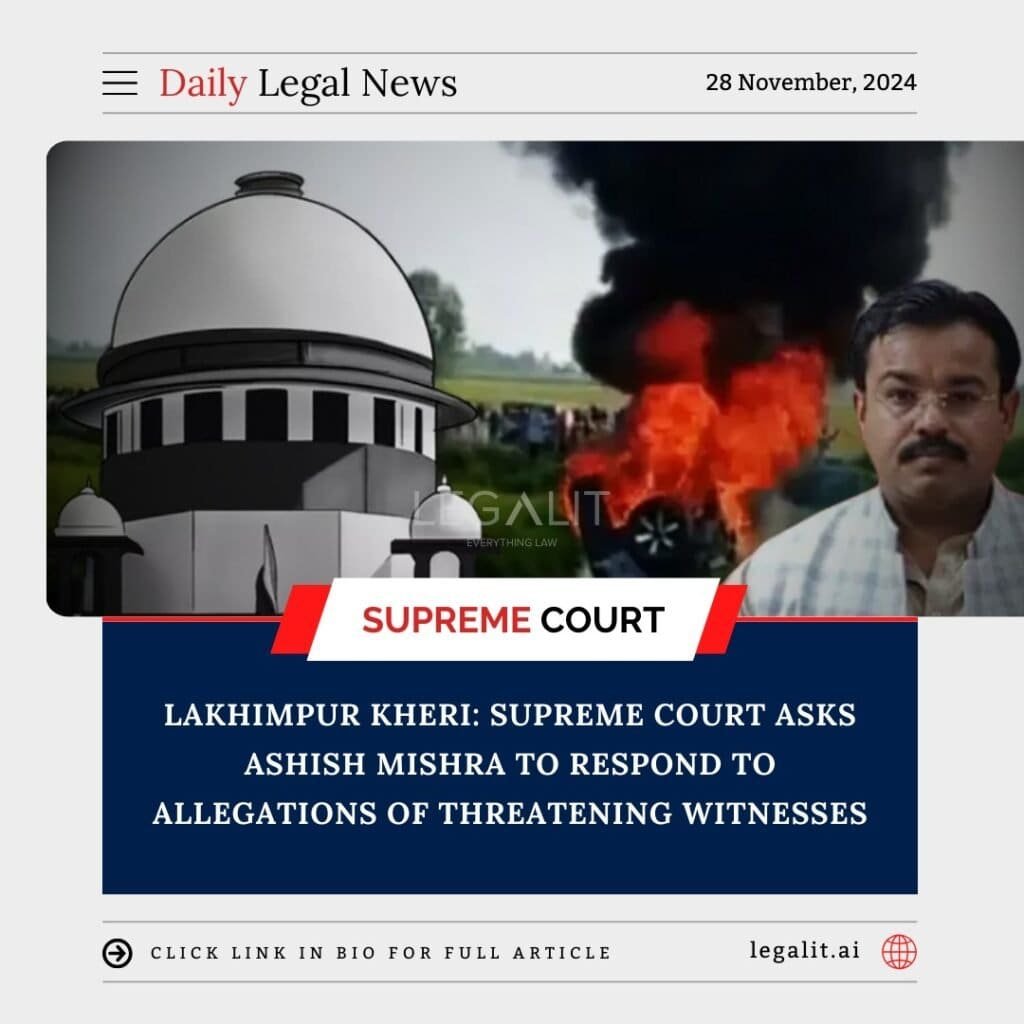
The Supreme Court of India has directed Ashish Mishra, the main accused in the 2021 Lakhimpur Kheri violence case, to respond to allegations of threatening witnesses. The allegations have raised concerns about the safety of witnesses and the integrity of the ongoing legal process.
Background:
Ashish Mishra, the son of Union Minister Ajay Mishra, is accused of mowing down protesting farmers with a vehicle during a rally in Lakhimpur Kheri, Uttar Pradesh, in October 2021. The incident resulted in several deaths and sparked nationwide outrage. While Mishra is currently out on bail, fresh allegations have emerged accusing him of intimidating witnesses in the case, potentially jeopardizing their testimonies.
Court’s Rationale:
The Supreme Court, taking cognizance of the allegations, emphasized the need to ensure a fair trial. It has sought Mishra’s explanation and warned against any interference with the judicial process. The court underscored the responsibility of the legal system to protect witnesses from coercion or threats, especially in high-profile cases that attract public scrutiny.
Existing Measures:
Indian law provides mechanisms such as witness protection schemes to safeguard witnesses in sensitive cases. In recent years, the judiciary has taken a stricter stance against tampering with evidence or witnesses, considering it a serious violation of the rule of law.
Conclusion:
The Supreme Court’s intervention reflects its commitment to upholding justice in the Lakhimpur Kheri case. By seeking a response from Ashish Mishra, the court aims to ensure that the trial proceeds without external influence or intimidation, safeguarding the principles of fairness and accountability.